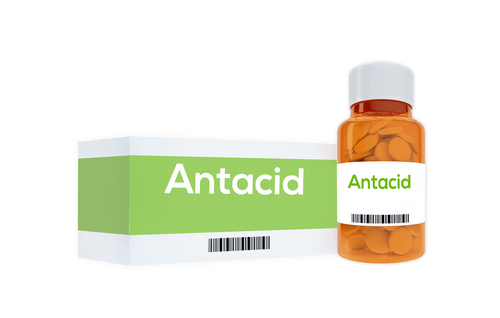Antacid Therapy May Not Benefit IPF Patients or Impact Outcomes, Australian Study Suggests

Contrary to what has been suggested, antacid therapies may not change survival or disease progression rates among people with idiopathic pulmonary fibrosis (IPF), an Australian study found.
The study, “Gastroesophageal reflux and antacid therapy in IPF: analysis from the Australia IPF Registry,” was published in the journal BMC Pulmonary Medicine.
Gastroesophageal reflux disease (GERD) is a medical condition in which the acidic stomach contents leak back, or reflux, into the esophagus, causing irritation and damage to the tissue. It is normally caused by a small muscle valve at the entrance of the stomach that is weakened and fails to close properly during food digestion. A person is considered to have GERD if reflux happens at least twice per week.
The most common treatment for GERD is the use of antacid medications that neutralize the acidity of stomach contents, resulting in minimal irritation of the esophagus and reduced burning sensation in the chest and throat, often called heartburn.
GERD is a common comorbidity, or another simultaneous disease, among IPF patients. Treatment guidelines now recommend the conditional use of antacid therapies for all people with IPF, regardless of whether they have GERD symptoms, based on clinical evidence that such therapies could improve survival and slow disease progression.
However, recent studies have suggested that using antacid therapies might not be beneficial for IPF patients. On the contrary, they might actually increase the risk of developing lung infections.
Researchers from the University of Sydney and their collaborators examined the prevalence of GERD symptoms and the impact of antacid medications on disease progression and survival in IPF patients.
They conducted a prospective study based on patients’ clinical records stored at the Australian IPF Registry. GERD-related clinical data was assessed by a questionnaire, which all IPF patients in the Registry had been asked to complete on a regular basis.
A total 587 patients with moderate IPF had completed the GERD questionnaire and were included in the study. More than half were men (69%), former or current smokers (72%), and had a mean age of 71.0.
Only 41.4% of the patients had been clinically diagnosed with GERD and only 29.1% experienced GERD symptoms on a regular basis. Still, 65% of these individuals were taking antacid medications.
Assessment of the frequency scale for symptoms of GERD (FSSG) score showed the group had a mean score of 8.39, which is above the eight-point threshold value indicative of GERD symptoms. In particular, 43% of the patients were found to have FSSG scores higher than eight.
No significant differences were found in survival or disease progression between patients who were taking antacids, had been diagnosed with GERD, or experienced GERD symptoms, and those who did not.
“While further, robust randomized controlled trials are still needed, this study adds weight to the gathering evidence that antacid therapy may not be beneficial in IPF patients and that reflux directed therapy should be considered on an individual basis,” the researchers said.
Although severity of reflux symptoms is not an accurate parameter to predict IPF outcomes, “it may help select patients who will benefit from [GERD] treatment for management of symptoms and the prevention of esophageal injury,” they said.
This study also highlights the difficulty in defining GERD in this population, underscoring the need to standardize a GERD definition to be “used in future prospective randomized studies if evidence of treatment benefit is to be accurately assessed,” they added.







